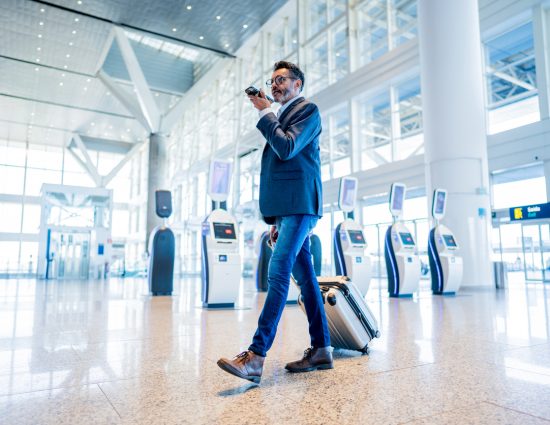The New Definition of Duty of Care

Think back to 2019. Back then, when we thought about planning for an emergency that might impact our global mobility operations, the first things that came to mind were natural or political disasters, right?
As CapRelo’s Director of Operations, Liz Simmons wrote that year, duty of care was really about keeping our employees safe from “major hurricanes, earthquakes, and storms (that) claim thousands of lives and cause billions in damage.” But, more recently, she’s transformed her views. “The global impact of the COVID-19 virus continues to shape the business landscape in every industry. Nations around the world continue to struggle with other prolonged challenges—armed conflicts, health crises, poverty, political turmoil, and more,” she says of a world emerging from a global pandemic.
The reality is that each of these challenges adds complexity to corporate mobility and employers’ duty of care. Global mobility managers are always focused on duty of care – but today, duty of care means much more than just keeping employees safe. It means staying laser-focused on employees’ mental health and well-being as those frame the new definition of duty of care.
What is your mobility team doing to ensure the health and well-being of your assignees? Here are some things to consider.
The Risk of Overlooking Well-Being in Duty of Care
International assignments’ impact on mental health is not a new discovery. In 2017, AXA-Global research found that 11% of international assignments fail due to personal reasons, the most common being family concerns. Additionally, it found that more than two-thirds of multinational companies reported concerns about their international assignments failing due to mental health problems.
Another study estimates that more than half of international assignees are at higher risk for anxiety and depression.
It’s clear that while taking a remote assignment can be exciting, it comes with inherent stressors. Among them: being away from friends and sometimes family, adjusting to a new culture and language, finding a new home, and settling into a new community. COVID has only exacerbated those challenges.
Create Flexible Policies to Support Mental Health
In CapRelo’s recent survey of HR leaders, one-third said their relocation policies have been updated to reflect attention to employee well-being and mental health. The good news is that many organizations were adjusting for more flexible policies that addressed employee well-being before COVID. The pandemic simply expedited them.
“The pandemic has pushed us into a way of working that we weren’t used to,” Michelle Williams, Global Mobility Manager for Walmart Canada Corporation told CapRelo on a recent webinar session. “We really need to look at the ways we traditionally worked and think about how we accommodate assignees so that we are bringing them in safely to new locations, and they are set up to hit the ground running.”
Set Employees Up for Success
As a part of their duty of care, global mobility leaders can help set their employees up for success BEFORE a global assignment. That should start with checking in with each assignee. Are they experiencing anxiety over certain aspects of a move? Perhaps it is unfamiliarity with the language or culture of their destination. It could be concerns over how they will get their medication or finding the best school for their child. Identify potential stressors and customize a response game plan that addresses them. Your company can offer language or cultural classes or can connect them with another employee in-country to “mentor” them through the transition.
Forget the One-Size-Fits-All
Identify the types of assignees that your organization typically places. They could be executives, technical roles, or new hires, for example. Customize packages for each group that addresses the needs they commonly share. But also be ready to make exceptions within each package. “Learn to think case by case on what will work for this person and that person – flexibility is key,” says Lee Motley, Manager, Production Recruiting with Wolfspeed.
You might also consider offering a well-being allowance – it could be used for local culinary classes, or tours of the local area, things that encourage the employee to explore and enjoy their new surroundings.
Check-In Frequently
The real duty of care work begins once your assignee is in place, and now is the time to stay in frequent and regular contact. “Once settled, make sure you’re regularly checking in with the employee to see how they’ve found the move and new environment,” says Caroline Walmsley, AXA Global Healthcare’s Global Head of HR. “Make them aware early on that talking about their own mental well-being is important and accepted. Keep the door open and try to create a comfortable environment for them to be open and honest with you. This should help you spot any signs of mental ill health early on.”
Duty of Care: Counselors in Anxiety
Global mobility leaders must recognize their duty of care responsibility includes becoming “counselors in anxiety,” Motley recently told CapRelo. As we look at how we are investing in our employees, organizations must view that not just from a growth perspective but also from the perspective of empowering its people. We must take into consideration each person’s personal circumstances, and what each person needs to make this an effective assignment.
That is not only good business. It is just simply the right thing to do.
Looking for more best practices to guide your mobility business model? CapRelo’s seasoned relocation management team can help you navigate the complexities of global mobility. Contact us for more information.



